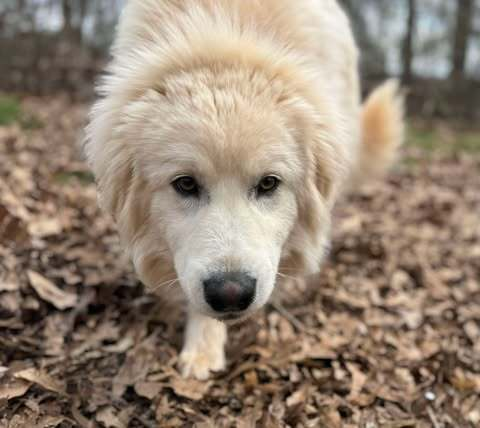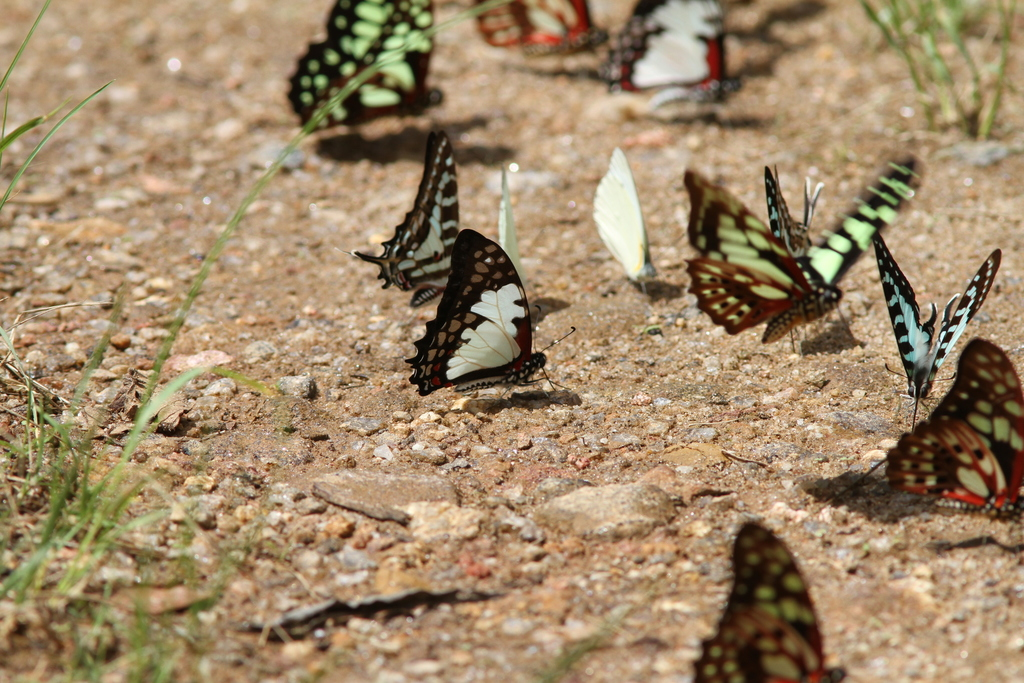A local lurker asked, recently. Person moved in from a different town in Virginia. Person got to know only a few people, mostly in one family. The relationship with that family was not ideal. Suddenly that nice little house in my nice little town began to feel very lonely. "Will I always be an outsider here?"
All I can say is: Define "outsider."
Gate City is not that town, allegedly in Vermont, where a gravestone allegedly reads something like "Here lies John Smith: Born in nearby town, 1812. Moved here with parents, 1820. Joined church, 1828. Married Jane, daughter of Councilman John Doe...served in...appointed to...elected to..." for nine or ten lines showing full membership in the community, and then the final line, "Died here, 1898. Dearly Loved Tho' a Stranger Among Us."
No. You can vote in the election after you buy or rent property here. You become the working equivalent of a relative by marrying a relative. You become a friend, or don't, on the same schedule you would anywhere else, with one person at a time.
If you are becoming a friend, your having lived somewhere else is...interesting, to many local people. Why do people always imagine that they are the only ones who ever feel awkward and socially insecure? Small towns retain a lot of the people who felt too awkward and socially insecure to move away, who got jobs only because their parents arranged jobs for them, or who own land or were full-time mothers and never got jobs at all. Most people in a small town resent that stereotype, but stereotypes have to come from somewhere. There are people like that here. They don't know what to say so, if the one thing their none-too-active brains retain about you is that you used to lived in a different town, even if the town in question is Clinchport, or even Yuma (the settlement on the other side of the mountain), if you live here for fifty years they'll still be greeting you with "Have you gone back to Yuma lately? Do you miss it? Do you want to go back?" You might be the closest thing they have to a friend, but still they'll say things that sound as if they thought you ought to go back to where you came from, because what else are they going to say. Some people just aren't very bright. One of the things some people like about small towns is that the relatives of the not-very-bright often find ways to fit them into local society, and everyone is charitable about them.
If you marry into a local family, outside that family you might be considered part of the community now. Inside, it might be a different story. Nobody ever thinks their in-laws are good enough for their relatives and extended families tend to grind it in. Why did I not bring my husband home and tell everyone about him? I'd seen how the family behaved toward some people my cousins were almost as lucky to get as they were to get my cousins, and said to myself, "I would not like to have married into this family."
If you work for a locally owned business, people who look forward to helping you spend your wages will want to be friendly. People who did not get your job will resent you. Any legal and even borderline socially acceptable behavior that makes you wish you worked a thousand miles away will be noted and repeated, and repeated, and repeated.
If you have your own business, and bring money from outside our town into our town--which is what most adults want their children to do--people of good will may admire you; that will be one more reason for people of ill will to resent you.
If you have a disability and chose your new home because it was accessible and near a reliable personal assistant...God help us, there are people who will resent that, too. What did you ever do to be so lucky when someone else had an unreliable personal assistant?
Whatever people notice first about you, there is someone who thinks this town could use some more of it, and someone who hates it. Height? Work experience? The car you were driving when you came into town, even if it was a rental? Yop. Haters hate because they are haters.
You have to understand that some people have never really recovered from going to public school during the baby boom. Everyone had a friend and an enemy, in each grade, however arbitrary the reasons for the choice of friends and enemies may have been, and however little most of us did about having friends and enemies. Those of us who can now shake the hands of our primary school enemies are strictly those of us who finished high school and lived somewhere outside of my home town for a few years. For some people who certainly look as if they ought to be "mature," I mean, who have grandchildren, hostilities are as strong as they were on the day the official enemy walked up to them on the first day of school and said "That's an ugly shirt, a stupid lunchbox, a bad hairstyle..."
Some of us were the little poison-pills who walked up to people on the first day of school and made those remarks about the shirts their mothers had chosen. The biggest bully in my brother's classes, who finally stopped persecuting my brother because he was held back another year and could beat up even smaller classmates, got a government job. The meanest-mouthed girl in my class...at least she works in the private sector. They've changed! They've matured! But probably not as much as would be desirable. Some people still are the social bullies who tell other people, "Don't talk to that person unless you want to be as unpopular as that person is!" and some people still are the second-string social bullies who don't talk to "that person," too.
Some of us were, of course, the nice, kind people who never did or said anything to hurt anybody, even in primary school, and still don't. And since those people don't want to get into any controversy, they probably didn't say much at school at all, and they probably still don't. I was not necessarily one of those people at school, but as an adult I can relate to the idea that a successful trip into town is one on which all the errands are done without having to speak to anyone. You're not an outsider, to these people; you're not an enemy; you're just not one of the half-dozen people to whom these hermit souls find it necessary to talk, or relate, or pay any kind of attention. People who seemed nice and kind in primary school probably have hermit souls.
Mean people are usually extroverts. Kind people are usually introverts. There are more kind people in most small towns, including mine, than there are mean people; but the mean people make a lot more of the noise.
All these things are generally applicable to all small towns. In your own town you know some, not all, of the most unpleasant people's names. In another small town you don't. That might be one definition of the difference between "insider" and "outsider" and, if it's your definition, you can probably become an "insider" in five or ten years.
Sometimes it may be possible to measure some specific indicators of the extent to which people dislike, or don't care about, people who are "like you" in some specific way...or at least the extent to which living in a specific town will be an inconvenience to you. Do all the stores have steps, or do some have flat doorways or ramps? My town still has a lot of steps but, when and as money permits, people are putting in ramps.
But hostility, as distinct from cluelessness, has usually been driven underground to some extent. By now most Americans have heard enough about race prejudice to be ashamed of feeling it, if they do, but does that mean that they'll flock to a new store owned by someone who looks different from them, or that they'll resent the idea of someone who looks different from them even wanting to move in and open a store? To what extent does this have to do with loyalty to an existing store, as distinct from prejudice against a new store, as distinct from prejudice against a physical type defined as a "race," as distinct from their attitudes toward a type or even a brand of merchandise? Market surveys need to be very specific. Sometimes people say "Yes, we'd love to see that" when the unspoken bulk of the iceberg is "It would be nice if other people wanted that kind of store, and made it possible for this nice new neighbor to keep it open, but I wouldn't have any use for it." Sometimes they say "No, that wouldn't work" when the unspoken bulk of the iceberg is "Something in that general line didn't work, in the past; I have no idea whether you've learned enough from that other person's mistakes to have a working model for that type of business now; I'd support it if you had one, but I'll believe you have one when I see it."
In the mid-twentieth century whole demographic groups of people decided that mainstream US culture had changed in ways that didn't serve them well. It seemed convenient at the time to call the things people wanted to change "traditional"; actually they were recent innovations. Black Americans didn't like the system of segregation that developed between the 1920s and the 1950s. Women didn't like the idea of suburban homemaking that developed (from an idea touted by French Socialists in the 1830s) between the 1930s and the 1950s. "Creative" people didn't like the conformism that was fashionable in the 1940s and 1950s. Homosexuals didn't like being presumed mentally ill and dangerous to society. People who built and worked with machinery didn't like many of the machines that were used in the 1950s and 1960s, and in fact we now know that some of them, like the hateful electric typewriter, were designed to leave lots of room for improvement while the designers worked on the inventions intended to replace them. Left-wingers didn't like the Cold War. Young men didn't like being drafted to fight in the Vietnam war. Lots of people wanted to change the changes that had been made earlier in the century. So the ones who were in the Democratic Party took it over and declared it the party of Change.
Others of the people who wanted all that Change thought there were better ways to make Change than making the US more like the USSR. Equal opportunities, feminism, "creativity," inventiveness, pacifism, and "not necessarily pacifism but at least ending the draft" have nothing whatsoever to do with either the Democratic Party or socialism; they merely happened to interest some people who were in the Democratic Party and/or wanted socialism in the mid-twentieth century. Not only have women my age had to demonstrate that our being independent, feminists, single, entrepreneurs, yuppies or whatever else we are have nothing to do with left-wing politics; apparently young women still do, which is inexcusable. If you are Black, if you're not half of a happy heterosexual couple and not asexual in a way that's easily explained by an obvious medical condition, if you're "creative," if you're Green, if you're the sort of really radical Christian who has no more in common with capitalism than with communism, and you're not Loony Left--if you're any of those things and your politics are even moderate D, much less if they're R--the Trump Train has done a lot toward helping people in small towns imagine that you might be a good neighbor, as distinct from a "Communist" troublemaker. But you still need to prove that you, individually, are not working toward "Agenda 21" or some other form of anti-American, anti-democratic, anti-civil-liberties nastiness.
If you're not working toward the goal of leftist tyranny, but your ancestors have not been in my town for six, ten, or more generations like most of ours, are you still an "outsider"? If you're making a solid contribution to a community as others in the community want it to be, but you spent part of your life outside that community, are you still an "outsider"? Define "outsider."
Some people in my town have made being a proud "outsider" into a sort of trademark. Confident in their marriages to local people, they've revelled in being "the one from" some other town. When asked "Do you miss your home town? Do you ever want to go back?" they organize car pools! Unfortunately this is easier for The One From Clinchport to do than it is for The One From England...
Some people are probably in for a hard time anywhere because they've made "persecuted outsider" part of their identity. It's one thing to be proud of being Irish or Jewish or Italian or Black or Southern, of having a strong, rich tradition that will go with you wherever you are. It's quite a different thing to define yourself in terms of victimhood. If you identify yourself as a victim it can be hard to act in ways that don't invite people to treat you like a victim all over again. If you buy into that stereotype the D Party are currently pushing--the one about Rs being neo-Nazis--you are identifying yourself as a victim.
I don't know of any neo-Nazis in my town. I know that, while our Greatest Generation were alive, any neo-Nazis who grew up in my town would have been very quiet until they could get out, which they would have done as fast as they could. Though actually, if someone my age had come up to any of my male elders and said "I'm a Nazi" or "I'm a Communist," I imagine that what would have happened would have been a long hard look that could have frozen alcohol, and a softly spoken but intense reply along the lines of, "You don't know what you're talking about. Go home," and the person would have gone home, and stayed home, for a good long time. The men who volunteered to kill real Nazis were not prone to private violence.
But the sort of thing we read and hear these days...! Seriously. We in my part of the world are starting to enjoy springtime weather, and some idjit whines, "You have to mention that some places are having autumn weather now, too, so that people in Australia don't feel left out." Well, I'm sorry, but that's Nature for you! They sort of are being left out. There are contexts where it feels realistic and reasonable to write that, or say in a public speech that, "On this day, which is midsummer for us here and midwinter for people in some other places..." and there are contexts where it's realistic and reasonable to write or say that, on this day, here, we are having this kind of weather, as distinct from what people somewhere else are having, as distinct from what we had at this time last year, as distinct from whatever else is not part of this time and this place. I like and respect the Australians I've met. Likewise the Canadians. Likewise the Zambians. Likewise the people in a hundred other demographics. I respect them enough to believe that they can speak for themselves, in their turn, and fill in the gaps. If I've said "your State," writing to a US audience, and you're reading this web site in a country that is not divided into States, I expect you to be able to fill in "province" or "district" or whatever is relevant. More novels should probably be set in New Zealand and have sultry Christmas Days before the pohutukawa trees bloom, and so on, but Americans aren't going to write those novels. What I know something about is States; what I know about the season and the weather is that spring begins in March here; what I know about the birds outside my window is that they're cardinals and wrens, and so on. It would be more presumptuous for me to write as if I had any experience of Canadian provinces, or autumn in March, or the birds outside the window being nightingales. And if you are the sort of person who goes into a small town and annoys people with this kind of thing, yes, you can expect to spend a lot of time feeling left out, of more than descriptions of local weather.
Would, say, a "gay" man always be an "outsider" in my home town? Well...does he want to be accepted as an unmarried man who might or might not seem especially close to a friend or housemate, or is he going to demand that other people celebrate his "special" relationship and his "I'm not annoying, it's just that everyone else hates me because I'm so wonderful" attitude? It matters. If a former student or a friend's son were asking me, I'd say that, when you want to focus on your sexuality, my town is less than an ideal place to be; the selection of possible bedmates is probably ghastly and the number of people who don't want to think about you in that context is high. I don't know that that's a reason not to live here. Heterosexuals who don't want to date our cousins don't have a lot of options here, either; I had dates in Washington, I was married in Washington, and then I came home and had dates in another place that's not my home town. So if you want to focus on work or personal growth when you're here, and either have your sex life somewhere else or have a stable, discreet relationship you can bring here, yes, you can be "gay" and be happy here. If you want to go around blathering about silence being death and everybody needing to know exactly what you and your boyfriend do at home, you probably won't be happy anywhere else either, but you certainly won't be happy here.
Would an Orthodox Jew always be an "outsider" here? Aren't they supposed to be "outsiders" everywhere; isn't that the point? A secular Jew who has not embraced socialism as a substitute for religion might like my home town. A Messianic Jew ought to like my home town. An Orthodox Jew would probably prefer to live in a place where there are enough other Orthodox Jews for a proper religious meeting. In some small towns there are. In mine there are not.
Would a Mexican-American, say the US-born son or daughter of legal immigrants, always be an "outsider" here? Much would depend on how much the person was willing to assimilate. We have a Taco Bell and a real sit-down Mexican restaurant. We also have at least one old idiot who called the parents of someone whose best school friend was waiting for person to join a car pool, to warn with quivering voice, "Some Mexicans have been parked across the street from your house for five minutes now!" The Mexicans involved laughed. They see the people who like them. They have good jobs; their neighbors enjoy being their neighbors. A different sort of Mexicans might have kept the old idiot in their minds' eyes, obscuring any view of the people who like them, for all the years it's been.
Would a Northerner always be an "outsider" here? Grandma Bonnie Peters was born in Kansas and grew up in Indiana. She was a Daughter of the Confederacy but she was a Northerner. People loved her anyway. Northerners who appreciate what they find here can be liked. Are they "outsiders"? You'd have to ask them. Councilman Roberts was a Northerner--almost an Englishman!--and people liked him enough to put him on the county council. People also made remarks about his accent and "Where is he from, anyway?" Define "outsider."
We've had Black councilmen, too. We've had female councilmen. We had two big stores, one owned by a Jewish family and one by a Palestinian family, across the street from each other, for years. People go to Indian-American doctors. People go to Chinese restaurants, even if they're not gluten-sensitive and even if they did not adopt Chinese children in the Bush administration. My brother used to love having someone to speak French to; I always enjoy having someone around who speaks Spanish. My family have had some of the biggest and best reunions, and those gatherings look like America. We had some "White supremacist" types come in looking for sympathy, thirty-some years ago, and we laughed them out of town, but in a charitable way, those poor idjits. We are not, generally, a town of haters. If anything we are a little too tolerant when people are haters, or are just plain sociopathic land-coveters. I think that may be typical of small towns too. Someone who has a good resume reaches middle age and nobody wants to believe how much evil he may be doing.
Am I an "insider" here? I have deep roots and a solid pedigree and a little hereditary property. Does that mean everybody likes me? Of course not; I have a third cousin who's been doing as much as he dares toward the goal of killing me for years now. Admittedly. Does it mean I'm part of some big "insider" clique? I think the town and county council may be a bit of a clique, and I want no part of any such thing. I don't participate in gossip. I don't want to do business on a basis of "liking" or not "liking" people; I want to treat all people impartially, according to the way they treat me. I reserve the right to agree with some things some people in the councils, and the Historical Society, want to do and disagree with others. Does that, all by itself, make me an "outsider" to some people? Absolutely. Does just not having a lot of money make me an "outsider" to even more people, in or out of my town? Of course it does. Does having a substantial amount of money, not even new money, in the family make me even more of an "outsider" to another lot of people, whether or not I even live to inherit any of the said money? Of course it does!
Anybody can declare anybody else an "outsider." Anybody can declare self an "outsider," even when others have tried to bring the person "inside" a group. A poet once wrote:
He drew a circle that shut me out:
Heretic, rebel, a thing to flout.
But Love and I had the wit to win:
We drew a circle that took him in.
It's an interesting historical exercise, at least: Make a list of the important things people have accomplished in human history. Use your own working definition of "important things." How many of those things were accomplished by "insiders"? How many by "outsiders"? How many by people who were born "insiders," like Jesus the descendant of David who, as soon as he'd made bar mitzvah, was hanging around under the feet of the rabbis at the Temple, and then became "outsiders" because they made a difference?
Define "outsider." Then give an example, and then explain why on Earth you care, anyway. If you like being here and don't want to make my town more like the place you left, then a reasonable number of people here will like you, a majority will leave you alone, and some should, as the song says, just go and love themselves.











